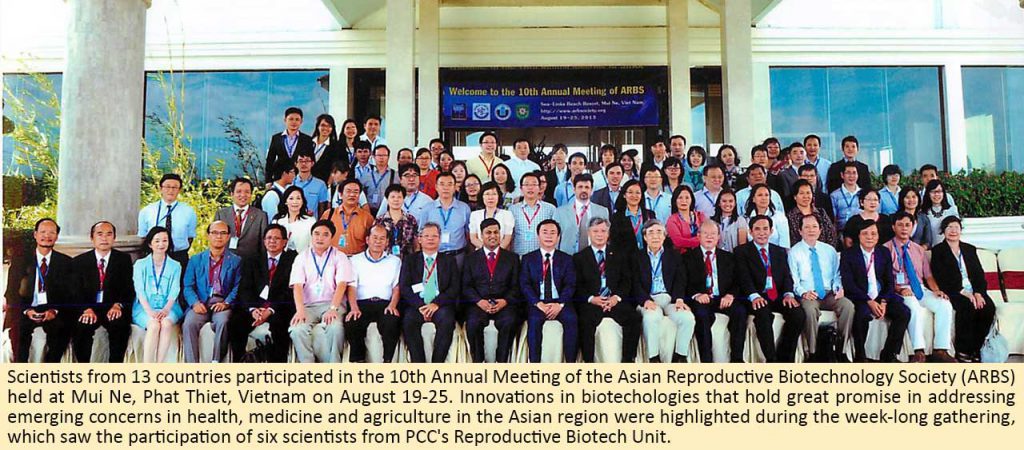10th ARBS annual meeting highlights reproductive biotechnology innovations

Innovations in biotechnologies that hold great promise in addressing emerging concerns in health, medicine and agriculture were underscored in the 10th Asian Reproductive Biotechnology Society (ARBS) Meeting held August 19 to 25 in Mui Ne, Phat Thiet, Vietnam. Established in 2004, the ARBS is a non-profit organization that seeks to promote the educational and […]
2 PCC staff attend 18-day rural development course in Japan
To deepen their knowledge and broaden their understanding and awareness of the dynamics of rural development, two staff members of the Philippine Carabao Center (PCC) participated in the training program for young leaders under the Rural Development Course of the Japan International Cooperation Agency (JICA). The training was held in Iwate and Akita Prefectures, […]
Pres. Aquino cites importance of public health and safety vis.a.vis food security
President Aquino has underscored the importance of public health and safety in relation to efforts at achieving food security for the country. Speaking at the opening of the Livestock Philippines 2013 Expo and Conference on August 7 at the SMX convention center in Pasay City, the Chief Executive stressed that “food security is not just […]
PCC front liners hone knowledge, skill in extension service in 5-day seminar
Front liners of the Philippine Carabao Center (PCC) are the contact points of the agency’s main clients, who are the farmers. As such, they are the ones who should change first, as they are the agents and sources of knowledge. This caveat was underscored during a seminar on providing extension services held at the PCC […]











